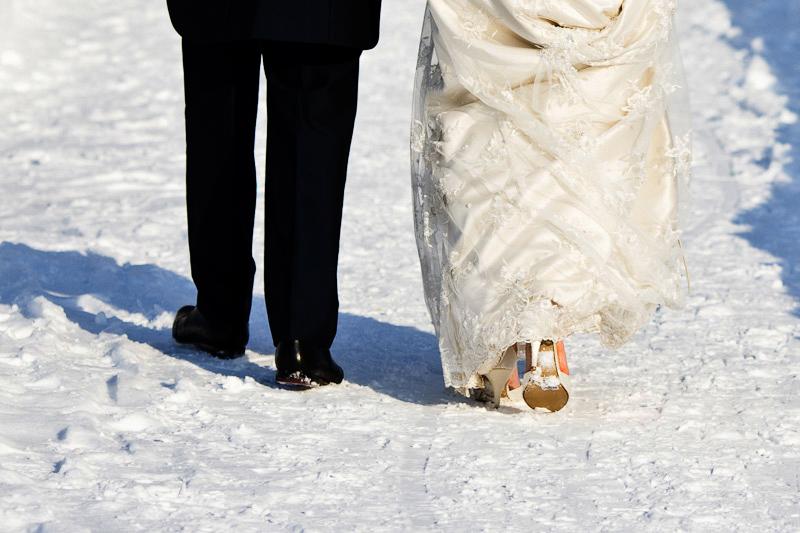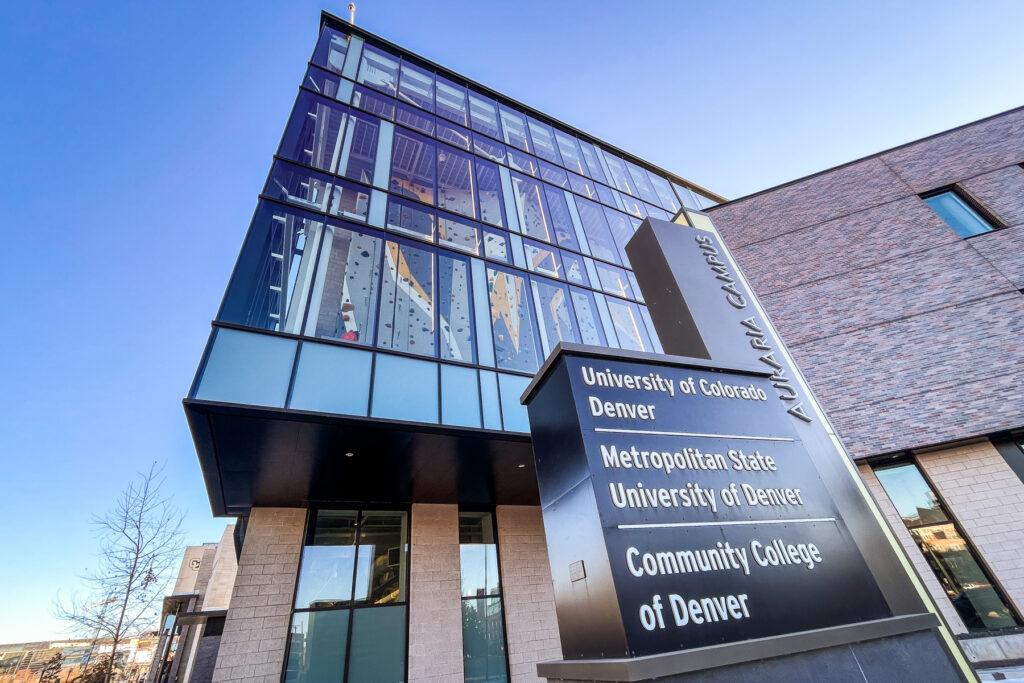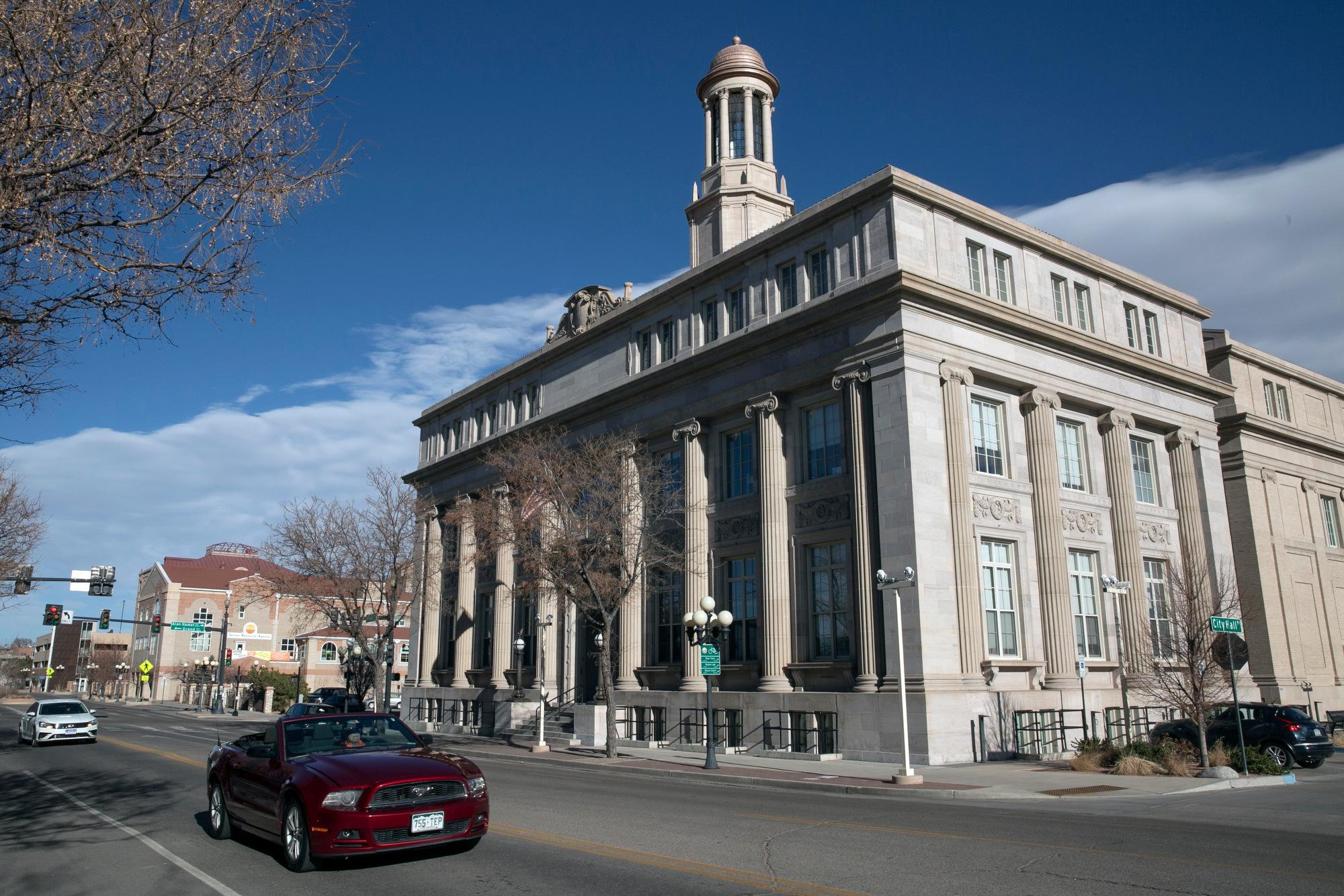
Colorado has spent nearly $300,000 in taxpayer money on private weddings in the state as part of an incentive program meant to lure event planners to spend money here and bolster local economies after the pandemic.
The program, created by legislation in 2021, offers a cash rebate that covers up to 10 percent of eligible costs for events that generate at least 25 paid overnight lodging reservations and demonstrate a significant economic benefit for host communities.
The intention was to get group travel back to pre-pandemic levels and encourage organizers to plan conferences, meetings, and yes, weddings, in Colorado. Colorado’s Tourism Office contracted with Metro State University to gather and approve applications.
After receiving details of the program through the Colorado Open Records Act, CPR News found:
- One wedding in Aspen at actor Kevin Costner’s rented private ranch received $92,287 — almost a third of the total and nearly 10 times more than the second highest.
- Roughly two-thirds of the cash has gone toward weddings in Pitkin, Eagle and San Miguel counties. Just 14 counties of the state’s 64 are represented in the wedding program.
- To qualify for a rebate, a wedding must cost at least $35,000.
- Metro State University’s hospitality school administers the program, and the recipient of the $92,287 rebate is one of the school’s largest donors. In addition, the administrator’s brother received a $4,467 rebate for a wedding in Vail.
The legislation that established the Meeting and Events Incentive Program was passed with bipartisan support. Republican state Rep. Matt Soper of Delta was one of the bill’s sponsors.
He said he wasn’t aware of the arrangement with Metropolitan State University and said giving such a substantial rebate to a large donor is troubling.
“Optically, that is very challenging … I don’t think you’ll find anyone in the Capitol who will defend that,” Soper said during an interview.
In an emailed statement, the interim dean of MSU’s school of hospitality, Annie Butler, said the institution is administering the program in an ethical and transparent manner, according to the law and criteria set forth by the state.
“As a rebate program and not a grant, there are no competitive elements that would enable one applicant to be accepted or denied over another applicant,” Butler said. “MSU’s role as program administrator is to determine whether the state’s objective criteria have been successfully met, not evaluate the merits of an applicant.”
As of last month, 35 weddings have received rebates, and the program is ongoing. As of November, it still had more than $5 million left to give out to eligible events.
It’s not clear whether or how well the state is handling the potential conflicts of interest that inevitably arise when taxpayer funds are paid to private businesses and individuals. Questions remain about its contract with MSU as well as other problematic aspects of a program that was legislated to disburse rebates equitably.
The state tourism office refused repeated requests by CPR News to be interviewed in person or over the phone for this story and said it would only answer questions in writing. CPR News declined to accept that condition from a state agency.
Weddings do create business
To be sure, weddings can generate meaningful economic benefits for a host of small businesses like venues and workers such as florists and caterers.
“We were trying to be agnostic as to what type of events we were trying to bring back to Colorado, because any large event that brings in dozens or hundreds of visitors is good for the economy,” said Democratic state Sen. Dylan Roberts of Avon, who sponsored the legislation during his time in the House.
According to data obtained by CPR News, the rebates for weddings were starkly lopsided. One wedding in Aspen at actor Kevin Costner’s rented private ranch received $92,287, the largest wedding rebate MSU has approved. In fact, it’s 10 times as big as the second-largest, the data show. The average rebate for the other weddings was $5,500.
The wedding was for Ashley Dimond, the daughter of Navin Dimond, a prominent Denver-based hotelier whose empire includes more than 65 hotels across the country, including the Renaissance in downtown Denver. He sits on the Federal Reserve Bank of Kansas City’s Denver Branch Board of Directors and is also a major MSU donor. The school’s hotel management program was named for Dimond and his wife, Rita, following a $1.5 million donation in 2014, which at the time was MSU’s largest-ever private gift.
“A lot of these hotels were really on the verge of bankruptcy. And to hear that almost a hundred thousand [dollars] went to a wedding at Kevin Costner's ranch near Aspen, that’s shocking to me and very troubling,” Soper said.
Roberts said he intends to bring up the program’s administration during annual oversight hearings. Soper said he’ll be asking questions, too.
To be eligible for the incentive program, an event has to take place in Colorado between July 1, 2021, and June 30, 2024; generate at least 25 paid overnight room nights in a motel, hotel, resort, vacation rental; and have total eligible hard costs at or above $35,000. The program defined events as: business meetings; conferences; conventions; exhibitions; trade shows; consumer shows; festivals; weddings; concert series.
The minimum rebate is $3,500, and the maximum rebate is $100,000.

MSU and wedding rebates
In an interview, Dimond said he could see why some people might question whether a wedding of this scale – which cost at least $1 million dollars – should be included in a government program. But, he said, he followed all the rules and met all the requirements.
“[Weddings] can be of different shapes and sizes. One could go to Vegas and elope and somebody else may go out and invite all of their family and friends and guests and spend their life fortune,” Dimond said. “We’re more the latter than the former. Indian weddings tend to be that way.”
The Dimond wedding was at Costner’s Aspen ranch in September. The movie star rents out his 160-acre property at the base of Independence Pass for private events. The ranch encompasses three houses, private lakes, and a baseball field, all set against a backdrop of the Continental Divide. A website for the ranch, which reportedly rents for $35,000 per night, calls it the “ultimate luxury retreat.”
Dimond said his status as an MSU donor had nothing to do with receiving the wedding rebate.
“Did [MSU] do anything wrong? The answer is no,” he said. “If it’s a program and you’re eligible … you do it.”
Dimond isn’t the only person with ties to MSU that received a rebate.
Shellie Kark runs the tourism incentive program for the university. Her brother received a $4,467 rebate for a wedding in Vail.
When contacted by CPR, Kark said her colleagues in the tourism office had told her to expect the call. She said she couldn’t comment and referred all questions to the tourism office.
Not what legislation had envisioned
The legislation also requires the tourism office to create guidelines that seek to distribute the aid “equitably and proportionally” across the state. But roughly two-thirds of the cash has gone toward weddings in Pitkin, Eagle and San Miguel counties.
Even when the outsized impact of the Dimond wedding is stripped out of the data, the distribution is uneven, with Eagle County accounting for one-third of the funding. Just 14 counties of the state’s 64 are represented in the wedding program.
“To me, when we were working on the legislation, we certainly envisioned a much wider swath of Colorado,” Soper said.
Roberts, who represents Eagle County, emphasized the benefits of the inclusion of weddings in the incentive program.
“People come for the wedding, but they're also staying in hotels, they're visiting local restaurants, they're shopping at local stores, they're renting cars, they're buying plane tickets,” he said.
But with benefits concentrated in a handful of locations, it starts to look more like a boon for weddings that cost more than $35,000 and involve 25 hotel rooms, as opposed to a program that’s directing aid to where it’s needed most. After all, weddings are held in every community, not just those that have high-end resorts.
“This sounds like maybe an issue of promotion of the program across the state … That’s something I would definitely encourage the tourism office … to do a better job of is go talk to the wedding planners in Pueblo or other parts of the state that aren't utilizing this and let them know that this is available,” Roberts said, adding that, like Soper, he wasn’t aware of the details of how the cash was being disbursed by MSU prior to speaking with CPR.
Editor's note: The story has been updated to clarify the terms that CPR set with the state tourism office regarding an interview.









